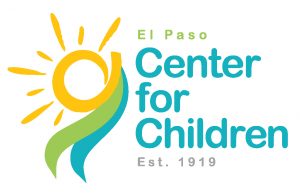Free Range Parenting
Parenting Approaches Series 3 of 4
Written by Mel Gutierrez, BSN, RN
In 2008 writer Lenore Skenazy was accused of being “America’s worst mom.” She wrote about letting her 9-year-old son, who wanted to ride the subway home alone, do just that. She made sure he could read the maps and gave him enough money to get home safely if he needed it. She trusted her child to remember the way home, ask for help if needed, and that the other commuters would not kidnap him. He got home safe- and was overjoyed with his independent success.
Critics scolded that anything could have happened to him, and her actions bordered on neglect. Her supporters, who fondly remembered playing outside alone, said they wouldn’t dare try it now. They feared that something terrible would happen or that they’d be accused of neglect.
Free-range parenting isn’t neglect. They focus on seeing what mature responsibilities their child can handle. They match developmental levels to challenges as their children grow. Their goal is to provide their kids the freedom and opportunity they need to “be kids.” Neglectful parents don’t match responsibility with skill. They don’t offer basic safety needs and let kids fend for themselves.
Let’s say a 5th grader is begging to stay home alone instead of running errands with their parent. This can be a scary thing to think about allowing. A big list of worst-case “what if’s” can run through a parent’s mind. What if they break something? What if they hurt themselves? What if somebody breaks into the house and hurts them?
Free-range parents avoid parenting out of fear. They resist the urge to protect their children from “what ifs.” They accept that minor mistakes and accidents are part of learning and growing, and the worst-case scenarios are unlikely to pass. Learning from the natural consequences helps children become confident in doing things alone.
When faced with a child asking for a new responsibility, free-range parents will parent will think about the following:
- If the child understands basic safety rules (and will follow them)
- If the child knows how to get help if needed
If the answers are both yes, they will let their child try to stay home alone. If it goes well, they gain the privilege. They do not gain the privilege if they try to make noodles in the microwave without water and almost start a fire.
Parents need to understand what is legal when giving their children more responsibility. For example, in Illinois, children can only stay home alone if they are 14 or older. Texas recently passed the Reasonable Children Independence law. It protects a parent’s right to decide if their children can do age and development-appropriate activities alone, without threats of neglect.
Raising kids to be comfortable doing things independently prepares them to be adults who can manage their lives without their parent’s help. After all, who wants to call the doctor to set up appointments for their 22-year-old?
The El Paso Center for Children has several programs and access to numerous community resources to help navigate and cherish family time. For questions, please contact us at 915.307.8043 or info@epccinc.org.
The written information comes from my registered nurse education and baccalaureate psychology education. It is only intended for educational purposes. The information written for this blog is not a substitution for professional medical advice or therapy services.





